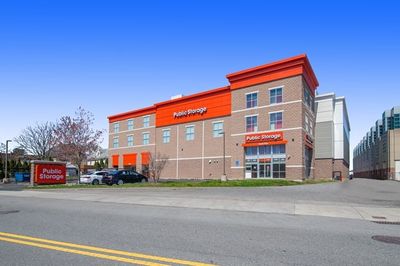Storage Types in Brighton
- Boat Storage Units in Brighton, MA
- Businesss Storage Units in Brighton, MA
- Vehicle Storage Units in Brighton, MA
- Climate Controlled Storage Units in Brighton, MA
- RV Storage Units in Brighton, MA
Other Storage Unit Options in Brighton, MA
Storage Unit Sizes in Brighton
About Brighton
One of Boston's 26 neighborhoods, Brighton attracts residents with its serene yet dynamic atmosphere. Brighton is located in the northwest corner of Boston, on the Charles River, and is considered one of Boston's quieter neighborhoods. It's home to a diverse population, including young professionals, families, and graduate students from the nearby Boston University and Boston College.
The History of Brighton
The area where Brighton now exists was originally settled by Europeans in 1630, initially included as part of Watertown. The English established a permanent settlement there, founding the city of Cambridge. Brighton was initially called Little Cambridge, a name that lasted until it seceded from Cambridge in 1807 and was annexed by Boston. At that point, the settlement was renamed Brighton, and it earned the title of one of Boston's official neighborhoods in 1874.
Brighton has been on the map in one way or another for nearly 400 years and witness to many historic events. The Brighton Cattle Market was first established in 1776 to supply food to George Washington's army during the American Revolution. This led to Brighton's status as a hub for cattle and slaughter trade, which lasted well into the 20th century.
Living in Brighton
The Brighton neighborhood has plenty to offer and maintains its own distinct personality within the larger city of Boston. For shopping and entertainment, you can visit the stretch of Washington Street between Brighton Center and Oak Square, where there are ethnic grocery stores and restaurants, bakeries, neighborhood pubs, and small businesses. Locals also have a favorite walking trail along the shoreline of the Chestnut Hill Reservoir, which provides a scenic view that feels worlds away from the busy city.
Much of Brighton is made up of multi-family homes and condominiums, which adds to the tight-knit sense of community. Like much of Boston, Brighton is home to a diverse population, which is evident in its vibrant events, restaurants and shops.
Brighton Schools
Brighton's schools are part of the larger Boston Public Schools district. There are several private schools in Brighton as well, including an international college prep campus and a few parochial schools.
Portions of Boston College are within Brighton's boundaries, as are the Everett Institute and Saint John's Seminary.
Resources for Moving to Brighton
Here's some helpful information for planning your move to Brighton:
- Utilities: The Boston Water and Sewer Commission oversees all residential water and sewer services. Eversource is the primary energy utility company in the area.
- Garbage and Recycling: Your trash and recyclables will be collected on a regular basis. To determine your pick-up schedule, you'll need to look up your address on the city website.
- Transportation: Boston as a whole is very pedestrian-friendly, but also offers easily accessible public transit options. The Massachusetts Bay Transportation Authority (nicknamed "the T") operates bus, subway, trolley car and boat service throughout the city.
-
Moving Day: Be aware that the city requires you to reserve a spot for your moving truck, so as to avoid blocking traffic and residential parking. You can reserve your spot online.
- Pets: All dogs must be licensed in Boston, which includes the Brighton neighborhood.
- Parking: The city of Boston requires vehicle owners to have a neighborhood-specific resident parking permit.
Brighton Housing
A large portion of homes in Brighton are either multi-family houses or condominiums, which is not uncommon for large East Coast cities like Boston. Brighton is one of the more affordable neighborhoods in the greater Boston area. Even so, single-family homes can easily cost over a million dollars, which is why many Brighton locals rent rather than buy.



